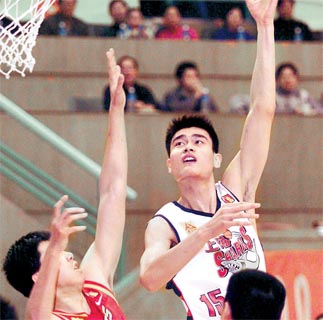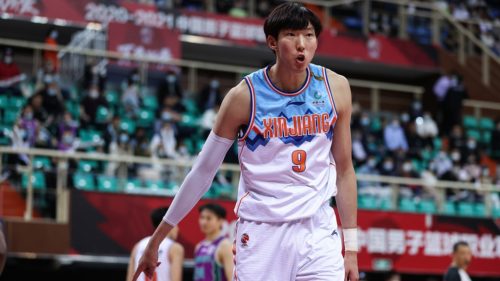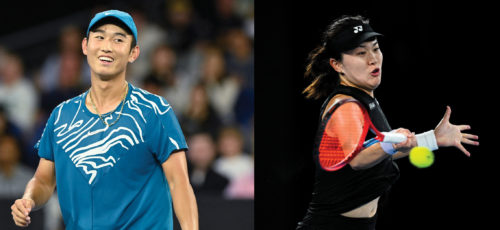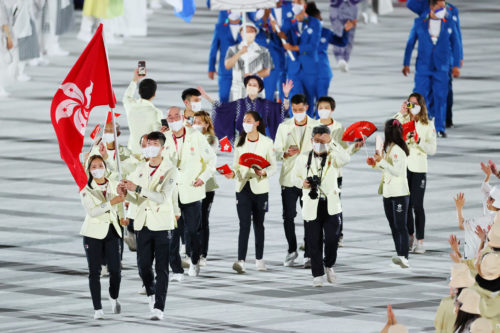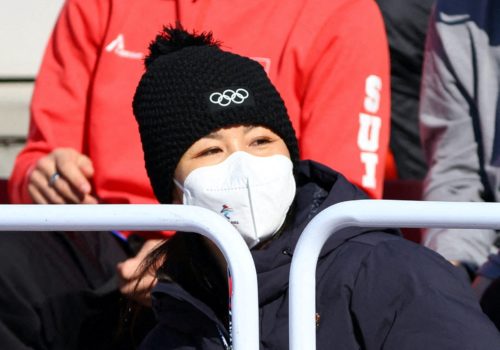China sports year-in-review 2018: Lessons learned
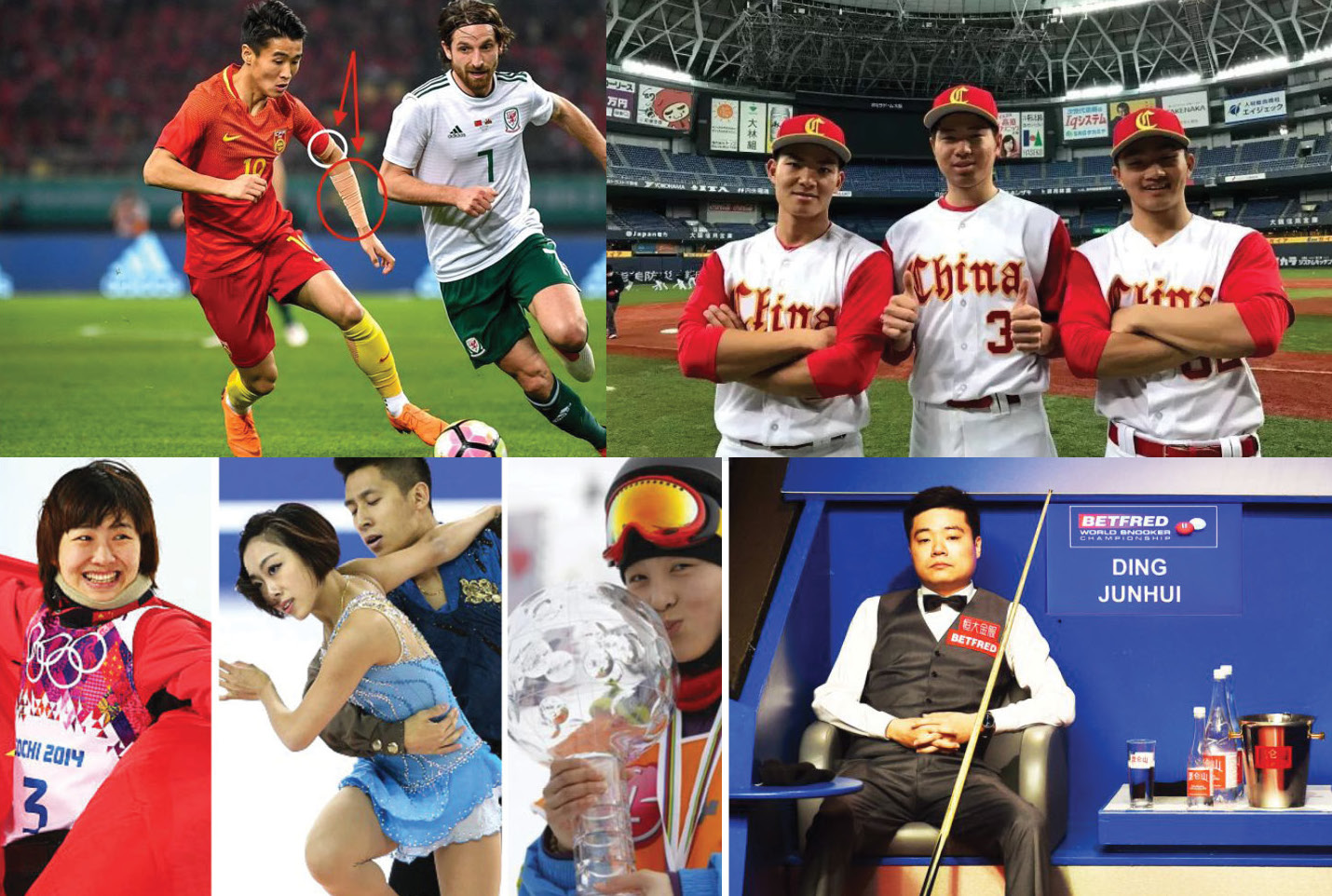
The China Sports Column is a The China Project weekly feature in which China Sports Insider Mark Dreyer looks at the week that was in the China sports world.
Sport generally makes people happy. Your sports columnist is generally a happy person.
But looking back on the year that was 2018 for the Chinese sports scene, happiness is not the overriding emotion with which I’m left.
Frustration? Disappointment? Resignation, perhaps?
All of those feelings and more, largely because what should be turning into a golden age for Chinese sport is fast being ruined by overzealous officials.
That’s nothing new, of course, but the sector desperately needs to modernize if economic intent is allowed to translate into success in various sporting arenas. Instead, politics continue to hold sway — to the detriment of the industry.
Let’s look at some of the biggest “victories” lauded by Chinese (state) media this year.
Yao Ming 姚明 was again anointed as the savior of Chinese basketball after the men’s national team won gold at the Asian Games, with the various moves made to restructure the national team set-up — most notably, a decision to divide the national squad into two parallel teams — credited for this result.
Don’t get me wrong, Yao is an absolute legend and has made some impressive steps during his short reign as CBA boss, but China’s competition on the Asian stage is somewhere between mediocre and nonexistent.
This year’s Asian Games victory was China’s eighth in the past 11 tournaments, while China has won 16 FIBA Asian Cup titles — 11 more than any other nation. In other words, gold in Jakarta should have been expected, rather than a cause for over-the-top celebrations.
Far tougher tests will come next year as China hosts the FIBA Basketball World Cup, and in 2020 at the Tokyo Olympics — the two tournaments toward which Yao’s changes were intended to build, rather than this year’s warm-up.
Meanwhile, sprinter Su Bingtian’s 苏炳添 time of 6.42 seconds in the 60m at the World Indoor Championships in March was enough to give him a silver medal and break the Asian record. He followed that up with three times for the 100 meters in the low 9.9-second range during an impressive summer outdoors that culminated in his first individual Asian Games title.
Cue more rapturous headlines.
As the first Asian-born sprinter to break the 10-second barrier for the 100 meters, he is unquestionably a pioneer.
But hurdler Liu Xiang’s 刘翔 feats from more than a decade ago are far, far more impressive: Olympic champion, world champion, and world record holder — the classic triple crown.
Su’s praise comes from a media desperately wanting to unearth Liu’s successor, but Su just simply isn’t the man.
Su has made the 100m final at each of the last two World Championships — in Beijing in 2015, and again in London in 2017 — but finished dead last each time. When the world’s best gather again in Doha next year, Su will not be among the favorites.
Liu Xiang was something of an outlier when he broke through to win Olympic gold in 2004, but nearly a generation later, no Chinese track athlete — male or female — has come close to repeating his feat.
Speaking of the Olympics, China did its best to manage expectations heading into the Pyeongchang Winter Games this year, but, behind closed doors, the team’s leaders would have expected more than a solitary gold medal — the country’s lowest return since 1998 — with the Beijing Olympics next in the rotation.
A silver lining can be found in the fact that China won medals in a record-equaling five disciplines, and, with the target of fielding athletes in every category in 2022, a record medal tally on home ice can still be within reach.
But administrative decisions — such as the one to remove legendary coach Digit Murphy from primary duties in charge of the women’s ice hockey team — will make medals that much harder to come by.
Chinese football has bumbled on, stumbling from one gaffe to the next, but this column has dealt with those details ad infinitum in 2018, so let’s move onto happier things.
In the Chinese Super League, Shanghai SIPG made a major breakthrough this year by ending Guangzhou Evergrande’s seven-year grip on the title, beating out the perennial champions by five points.
There was only one Chinese player among the top 10 goalscorers, but SIPG’s Wu Lei 武磊 was way out in front on 27 — six clear of the next best — while also adding eight assists, while he also had his most productive year yet for the national team.
Meanwhile, Wang Shuang 王霜, who moved to Paris Saint-Germain in August, was recently named Asian Women’s Footballer of the Year and made the D1 Féminine’s top XI, judged over the first half of the season.
Steel Roses teammate Wang Shanshan 王珊珊 also deserves a mention for scoring nine goals in 34 minutes during one particularly fruitful match at the Asian Games. Admittedly, Tajikstan didn’t provide the toughest opposition, but 12 goals from Wang Shanshan and another six from Wang Shuang took China all the way to the final, where they lost a tense battle 1-0 to Japan.
Another Wang — tennis’s Wang Qiang 王蔷 — was another standout performer for China in 2018, as she became the first player since Li Na 李娜 to finish the year inside the Top 20 after a surprising run to the final at the WTA Elite Trophy in Zhuhai.
With the season-ending WTA Finals now moving to Shenzhen in a 10-year deal, one of Wang’s main aims next year will be to make the eight-woman field on merit. If she does, she might even pick up a Grand Slam title or two along the way.
There were plenty of other memorable events in 2018.
Golfer Li Haotong 李昊桐 emerged as a future star, beating Rory McIlroy down the stretch for a big win in Dubai to flirt with entry into the world’s top 30. Further afield, Chinese owners retreated from European soccer clubs, with Fosun’s Wolves — now in England’s top division — a notable exception.
But overall, it wasn’t a stellar year for the world of Chinese sports. Roll on 2019…
The China Sports Column runs every Friday on The China Project. Follow Mark Dreyer @DreyerChina.
